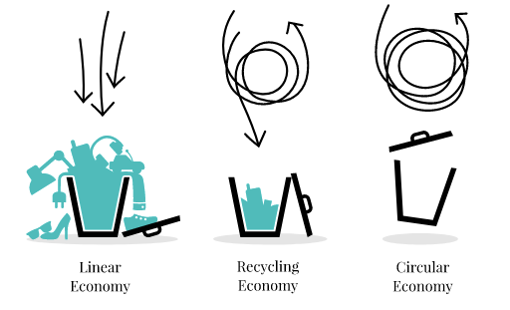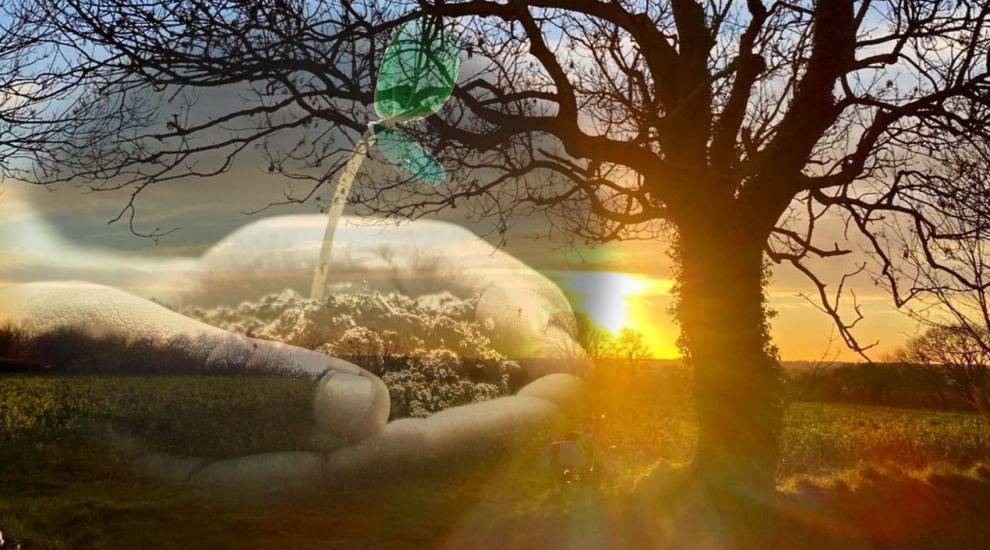
Part 3: What future do we want?
Monday 10 May 2021
Today we complete our series with the Jersey Policy Forum, looking at the future islanders' want, and how they might secure it.
How does the island become "a prosperous and resilient island, leading in sustainable and circular practices, where all people, communities and businesses can thrive in harmony with each other and within Jersey’s unique and beautiful natural environment"?
With the elections next year, the Jersey Policy Forum (JPF) attempted to find out, and the results were published in a report called 'The Future We Want'.
In a series of three articles, finishing today, Express has asked Gailina Liew, the Executive Director of the JPF to set out their findings. Next year we all go to the polls to elect our next government - what will the candidates have to say about the following issues?
Part 3 – An action plan for Jersey’s future
Building on core societal values and education reform, survey respondents and participants believe that Jersey’s economy needs to transition to one that leaves no-one behind and enhances natural capital is critical to ensure a prosperous future for Jersey and generations of Islanders to come. The need to work across the three broad areas of community, environment and economy resulted in the creation of several Policy Roadmaps that, taken together, can help to transition the economy.
The policy targets and a few recommended enabling actions in Policy Roadmap 1 – Circular Economy 2035:
- Decommission incinerator (energy from waste facility) at planned end of life (2034)
- Eliminate and/or repurpose all incinerator and landfill waste by 2035
- Establish common island-wide recycling system across all parishes
- Establish centralized and home-based composting for all organic waste
- Introduce commercial waste collection & disposal charges
- Introduce deposit return schemes to avoid single use items
- Provide financial incentives to support business growth, create new jobs and accelerate transition to circular economy
- Building on early successes of local sharing economy initiatives like Evie and OLIO, identify other sectors that would benefit (eg. household goods, toys, etc.)
- Identify opportunities to replace fossil fuels with other sources such as recycled vegetable oil in place of diesel
- Redesign agricultural and marine resource systems to be circular
The transition from linear to more sustainable or circular economic models requires a change in thinking and behaviour:


The elimination or re-purposing of waste as an input into the production process is another way to distinguish between linear (also called “extractive”) and circular models.
Transport and buildings are the two key drivers of Jersey's direct carbon emissions. The policy targets and a few recommended enabling actions in Policy Roadmap 2 – Net Zero Carbon 2035:
- Government of Jersey to lead by example and target net zero carbon by 2035 for all built environment and mobilityactivities
- New hospital to be exemplar of highest environmental standards in design, construction and operations including self-generation of energy, green walls/roof, etc.
- Ban all new fossil-fueled transport and energy production to accelerate transition to carbon-free systems
- Increase uptake of electric vehicles through DVS registration system
- Provide incentives for property owners to generate energy by solar, wind and tide
- Update transport laws for electric scooters / bikes / other options
- Open up electricity production beyond Jersey Electricity
- Investigate and utilize individual and community level carbon offset mechanisms as interim measure while technologies continue to develop and costs come down
- Explore use of car sharing models such as ZipCar
- “Frequency is freedom” - Investigate more frequent availability and use of smaller electric buses to ensure that no-one waits more than 15 minutes or needs to walk more than 5 minutes for bus from hours of 7:30 am to 9 pm
- Establish comprehensive and safe island-wide infrastructure for walking and cycling
Natural capital refers to the finite inventory of natural assets which include geology, soil, air, water and all living things. People use natural capital to support a wide range of services, often called ecosystem services, which make human life possible. The policy targets and a few recommended enabling actions in Policy Roadmap 3 – Enhance Natural Capital:
- Protect local trees, species and habitats to enhance island biodiversity
- Protect honeybees through rewilding
- Ban harmful pesticides
- Protect marine environment by banning dredging of seabed to 20 m, banning all potting within 25% of subtidal reefs on rotating basis, impose visitor limits and resident restrictions on Ecrehous and Minquiers, establish ranger presence on larger reefs
- Explore circular and regenerative models to establish sustainable farming practices that will enhance countryside and environment
- Explore options for better and more sustainable and coordinated land use of 200+ small independently owned land parcels
- Establish Higher Education Marine & Conservation Study Centre
- Create laws to protect island biodiversity and marine environment
Ensuring that the economy serves the fundamental purpose of providing access to a broader range of opportunities and a decent quality of life for everyone in Jersey while preserving and enhancing Jersey’s natural capital led to defining Policy Roadmap 4 – Sustainable Economy for All:
- Prioritise measures of well-being and happiness over traditional measures of GVA/GDP to assess economic success
- Establish Jersey as centre of excellence for philanthropic and sustainable fund administration
- Establish ECO Sandbox to encourage development of new economic models for agriculture, transport, built and marine environments (extension of DJ Sandbox)
- Provide incentives to accelerate adoption of sustainable business practices in construction, tourism, agriculture
- Provide government debt relief incentives conditional upon commitment to sustainable outcomes such as zero-carbon pathway, biodiversity net gain etc.
- Government to publish all emissions data and set standards to meet sustainable development targets
- Review migration and work license policies to ensure fair and equitable access to housing, employment, healthcare and benefits
- Explore increase in government-owned housing to provide decent and affordable rental of long-term housing
- Appoint Sustainable Development Commissioner (see Welsh model)
- Create local procurement policy for agricultural products produced from sustainable and regenerative practices for groups that would benefit most from nutritional density (eg. schools, hospital, care homes)
The full report can be read here.
In closing, the findings are clear: Islanders believe that Jersey can become an exemplar jurisdiction by prioritising government investment, focusing on sustainability, the environment, fairness, societal values, improving education and leaving no-one behind. And they have set out specific recommended targets and to-do lists for government.
JPF has presented the report to government and is engaging in discussion about next steps. Deputy Chief Minister Senator Lyndon Farnham commented,
"Government welcomes the JPF Policy Lab Report as a useful and valuable reflection of the considered views and ambitions of a diverse range of Islanders for the future of Jersey."
JPF calls on government to consider the findings – derived from the voluntary investment of at least 600 hours by survey respondents, policy lab participants and world-class external experts – and use them to inform the policy decisions and trade-offs that government will need to make in defining Jersey’s next common strategic plan.
Catch up on Part 1 HERE and Part 2 HERE.





